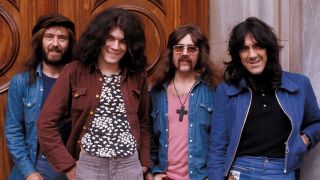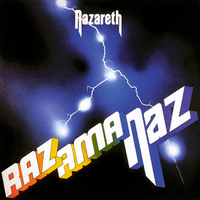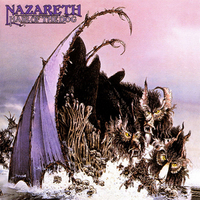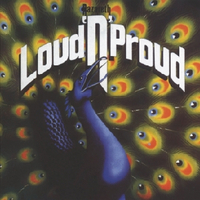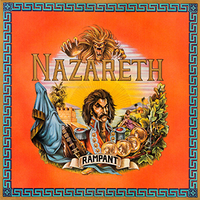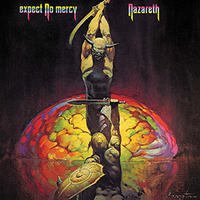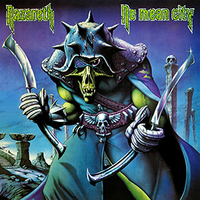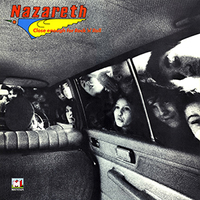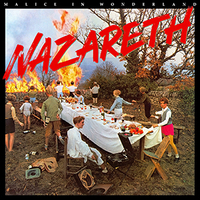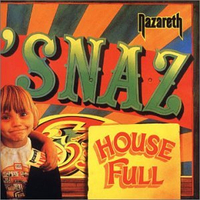Perceptions of Nazareth and their music have shifted greatly during the Scottish group’s five-decade lifetime.
“We’ve been a rock band, we’ve been pop stars, and then suddenly we became dinosaurs,” bassist Pete Agnew told Classic Rock, adding with typical modesty: “But if you can live through the dinosaur period, you become a legend.”
The reasons behind Nazareth’s longevity are numerous. Agnew and original vocalist vocalist Dan McCafferty met aged five on their very first day at primary school. They were later both in dance hall cabaret act The Shadettes, which morphed into Nazareth in 1968. When the band took off with such hits as Broken Down Angel and Bad Bad Boy, both were married and opposed to drugs, which helped them to remain grounded.
Musically, Nazareth – the classic line-up of which was completed by moustachioed guitarist Manny Charlton and drummer Darryl Sweet – always stayed true to their bluesbased, working-class roots. Agnew once quipped: “We were just like Deep Purple, only with choruses.”
And it’s beyond coincidence that Purple bassist Roger Glover produced three of Nazareth’s most important albums – Razamanaz, Loud ‘N’ Proud and Rampant – helping them to make inroads into the albums market.
A willingness to record covers of other people’s songs also characterises Nazareth’s catalogue; their own compositions have been covered by the likes of Guns N’ Roses, Michael Monroe, Blackfoot and Britny Fox. Indeed, McCafferty’s vocal rasp was such an influence upon Axl Rose that he begged Dan to sing Love Hurts at his wedding to Erin Everley (McCafferty declined).
Nazareth’s career path has hardly been a completely smooth one. Following the death of Darryl Sweet in 1999, Lee Agnew, Pete’s son, became their drummer. And in 2013 the band announced Dan McCafferty's retirement from the band due to ill health. Replacement Linton Osborne lasted less than a year before Carl Sentance, formerly singer of Persian Risk, the Geezer Butler Band, and Krokus, took up the role.
Continuing to enjoy playing music, Nazareth's most recent album, Tattooed On My Brain, released in 2018. They tour Europe later this year.

